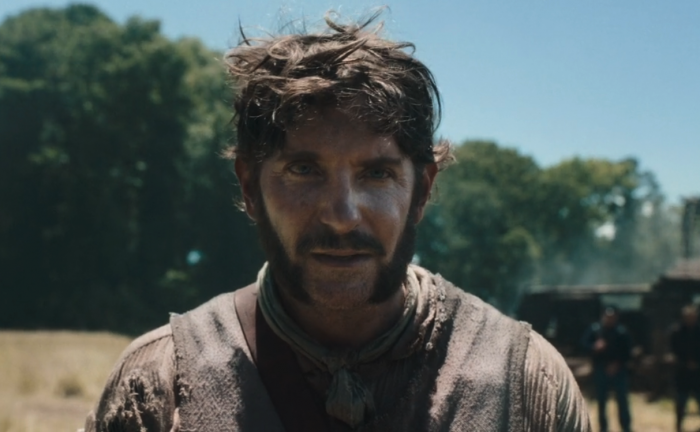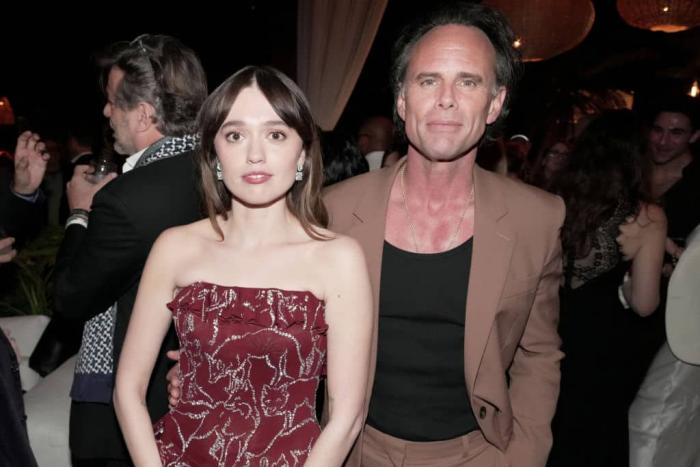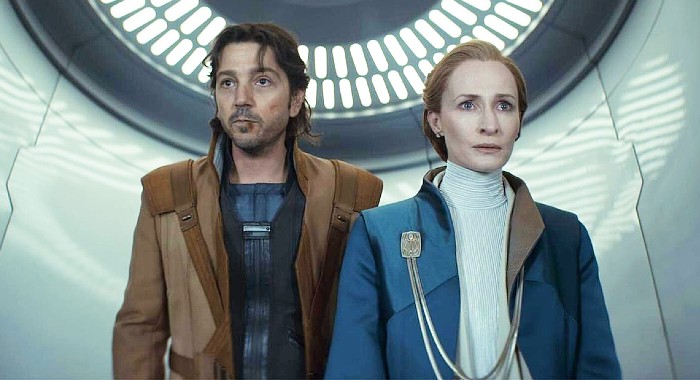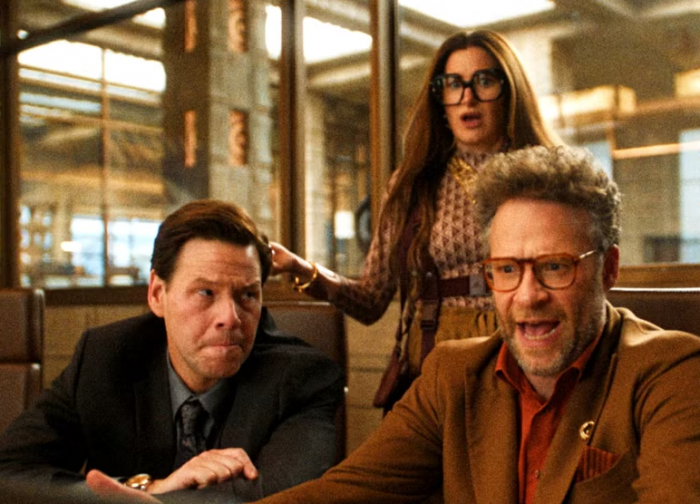
Review: 'Fantastic Beasts: The Crimes of Grindelwald' Stuffs A Suitcase Full Of Nonsense
By Tori Preston | Film | November 16, 2018
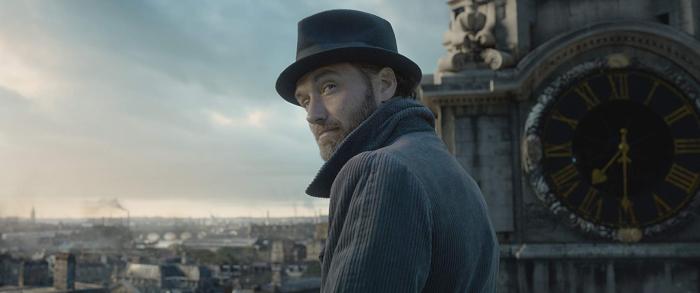
Don’t get me wrong: It’s entirely possible to have a fine enough time watching the latest Wizarding World entry from J.K. Rowling and David Yates. Fantastic Beasts: The Crimes of Grindelwald is not without its charms. However, the best way to enjoy it would be to turn your brain all the way off, and just not think about why anything is happening, or how, or who, or what. Just… don’t question it. And that’s the thing that’s impossible, because the film goes to great lengths to tease big honking connections to the larger Potterverse. It practically begs you to yarn-wall its plot. And that’s a problem, because none of it makes a lick of sense.
Mild Spoilers ahead
In jumping straight into screenwriting, I think Rowling has done herself and her fictional world a disservice. The Harry Potter franchise worked in large part because there was a solid foundation of fleshed-out novels, which most of the audience had already read. The films, understandably, needed to condense the books in order to fit them into a reasonable (if bloated) runtime — but they could do so because there was a larger context to condense from. And if a shortcut was perhaps a bit confusing for the uninitiated, a nearby Potter fan could always help backfill in the lore. The beauty of the Potterverse is that it is so vast, and specific, and filled with details and history. It’s a living, breathing fiction that could believably be hiding just outside of our No-Maj view. But with this new franchise of prequels, Rowling is going from the story that’s in her brain straight to the story that will fit on screen, and something is simply missing in translation. Namely: the plotting. It’s a hard thing to pin down when you’re in the midst of The Crimes of Grindelwald, because it’s not as if nothing is happening, per se. There are a ton of characters, new and old, and plenty of shuffling from location to location. Things are Happening. But when you leave the theater, and try to think back on what you just saw, you realize the film is, at best, an intermediary chapter that is exclusively setting the stage for bigger things to come. Or, at worst, it’s simply pointless filler. Because none of the Things that Happened are actually necessary.
The big question The Crimes of Grindelwald seeks to answer is who, exactly, Credence Barebone (Ezra Miller) really is. As you’ll recall, Credence was the abused young man who developed a powerfully dangerous Obscurus and wreaked havoc in NYC during the first Fantastic Beasts film… and then he seemingly was destroyed by a bunch of Aurors. And if you think this sequel is going to explain just how he managed to survive, much less how he hooked up with that traveling freak show in Paris, you’ve got another thing coming! The point is that he DID survive, and now he wants to know where he came from. Surely, for him to be such a powerful and long-lived Obscurial, he must have strong family ties in the Wizarding community. Which, in fact, he does — even if the ultimate reveal of his secret origins feels sort of like someone just played Harry Potter BINGO for his real last name. How that will gain relevance in future installments I’m eager to see — because until then, you’re just going to be left wondering why you never heard about him in Harry Potter.
But just because the film is about Credence, it doesn’t mean the film knows what to do with him. Other than teaming up with a Maledictus named Nagini (Claudia Kim — whose problematic role was far more magnified in the marketing ahead of the film’s release than is earned, based on her usage in the film), he’s mostly sidelined for the action. He’s the MacGuffin that spurs everyone else into action. Tina Goldstein (Katherine Waterston) is already on the ground in Paris in pursuit of him, inexplicably flying solo despite everyone knowing Credence needs to be found. For… reasons. Meanwhile, the Ministry of Magic is trying to make Newt Scamander an Auror himself so he too can pursue Credence, but he only wants to play with his beasties. Unless Dumbledore (Jude Law) himself decides to ask Newt for help, which he does… and even then, Newt’s like “Naw, bro.” He only gets mixed up in the events in order to find Tina and clear up a few misconceptions about his love live — like how he isn’t, in fact, the Scamander that’s engaged to Leta Lestrange (Zoë Kravitz). That’s his brother Theseus (Callum Turner), who already is an Auror, and who has no discernible reason to be in a relationship with Leta, considering it was Newt she was friends with at Hogwarts. Jacob (Dan Fogler) and Queenie (Alison Sudol) also wind up in Paris — and the less that’s said about the absolute character assassination Queenie receives in this installment, the better.
This time around, every character from the first film seems to have inexplicably changed into something far removed from what you remember. Tina accomplishes nothing, and Newt himself is mostly a glorified, waffling bystander. In fact, all he ultimately brings to the table is another niffler — one that proves to be the only real hero in the entire movie. Even Credence himself suddenly makes a damning choice in the end that, given the events of the first film, seem utterly unlikely. But clearly he needed to, for the next movies to unfold.
As for Gellert Grindelwald himself… well, I can tell you that Johnny Depp is, in fact, perfect for the role. You’re supposed to find the character despicable, and you will. That’s not so much a compliment to his performance, which is perfunctory at best, but in some ways, he is sort of necessary. You see, Grindelwald is supposed to be a sort of proto-Voldemort — another Wizards Do It Better wannabe despot who wants to remake the world according to his ideology. Something about muggles being livestock or whatever. As for what his crimes are… I mean, I guess they’re murder? Mostly he seems to just want to win wizards to his cause, in ways that are probably supposed to be Hitler-y but mostly wind up seeming kinda Trump-ish. Though that may be because of his face. Grindelwald’s own pursuit of Credence is finally clarified, and it all ties back to Dumbledore. And yet, again, none of it makes sense if you think about it. Credence may be the only wizard powerful enough to beat Dumbledore, and Dumbledore may be the only legitimate threat to Grindelwald’s ascension, but since Grindelwald and Dumbledore have been at a very specific stalemate for years (that I won’t go into, because it’s a spoiler) there is no need to beat Dumbledore.
And that’s sort of the experience of watching the film in a nutshell. Stuff happens, sure. But none of it needs to happen. All of the backstory on the Lestrange family amounts to nothing. Dumbledore putting Newt on the case as his trusted man is pointless. Credence’s own hunt for his origin is a wild goose chase. The movie is a feature-length exercise in shuffling chess pieces — which is a shame, because when it gets out of its own way for a few moments, there’s still the usual magic to be had in this world. There are a few exciting new creatures that join the menagerie. Jude Law’s young Dumbledore, still only a Defense Against The Dark Arts professor, captures the character’s signature twinkly-eyed swagger — a man who knows how to bring out the best in others. And Zoë Kravitz as Leta is perhaps the most surprising addition to this lineup. She simply IS magic — a spell you can’t take your eyes away from. And the greatest crime in Fantastic Beasts: The Crimes of Grindelwald just might be the one the film commits against her — and ultimately against us, for making us fall in love with her.
